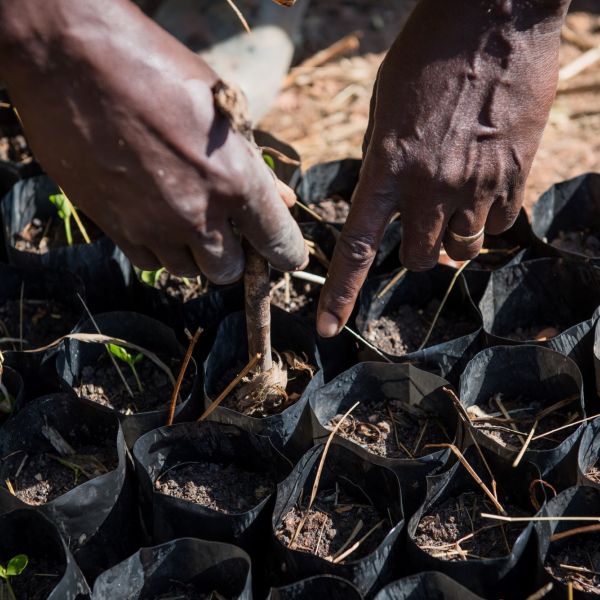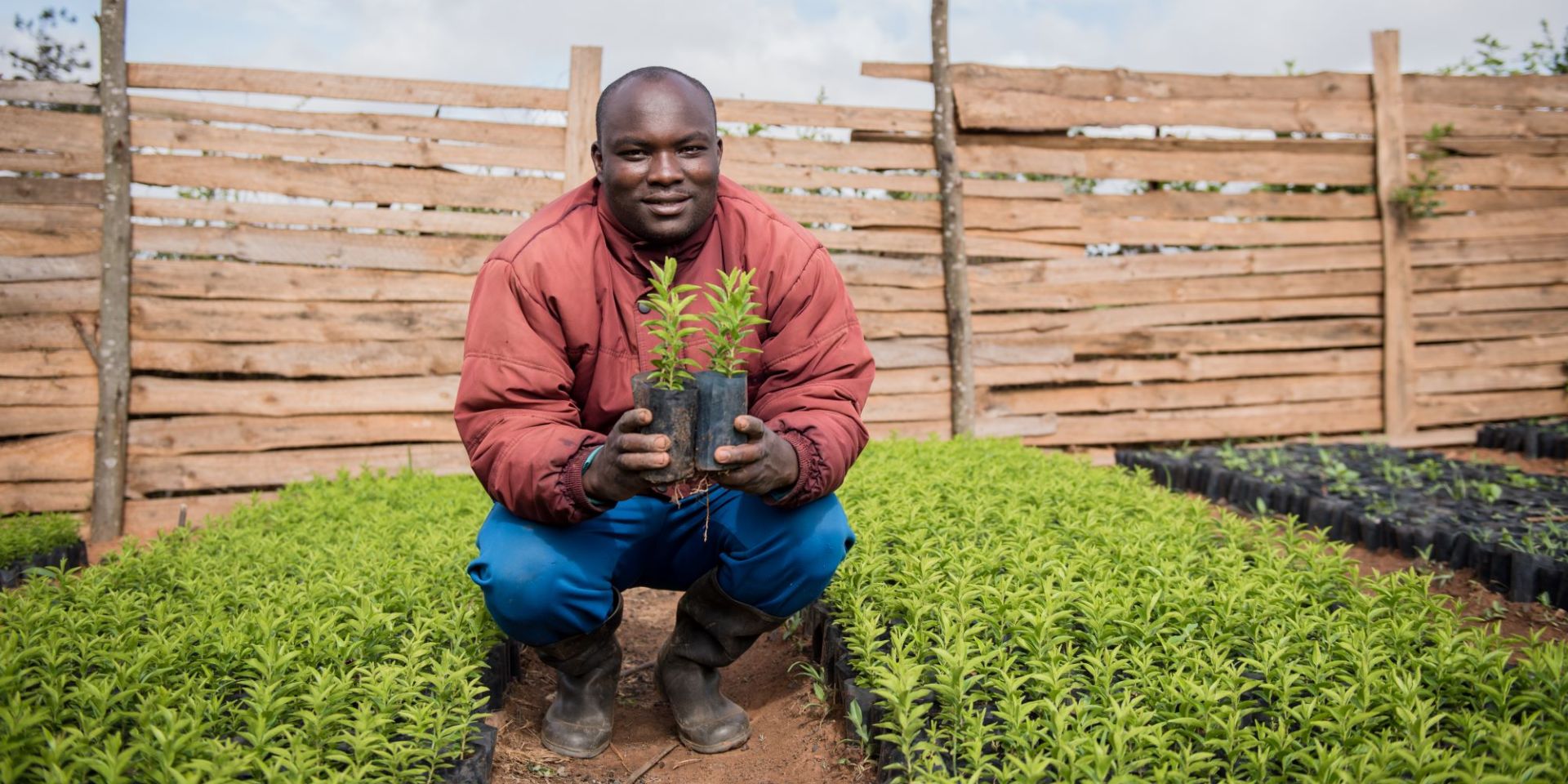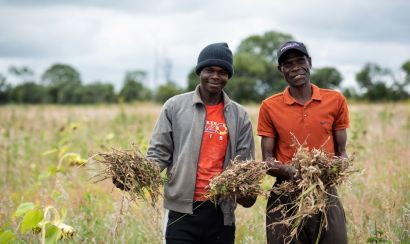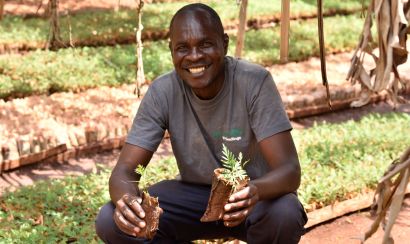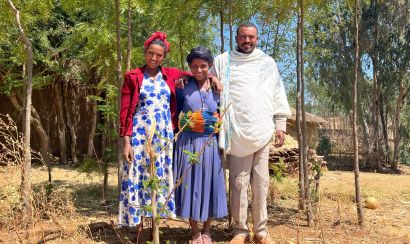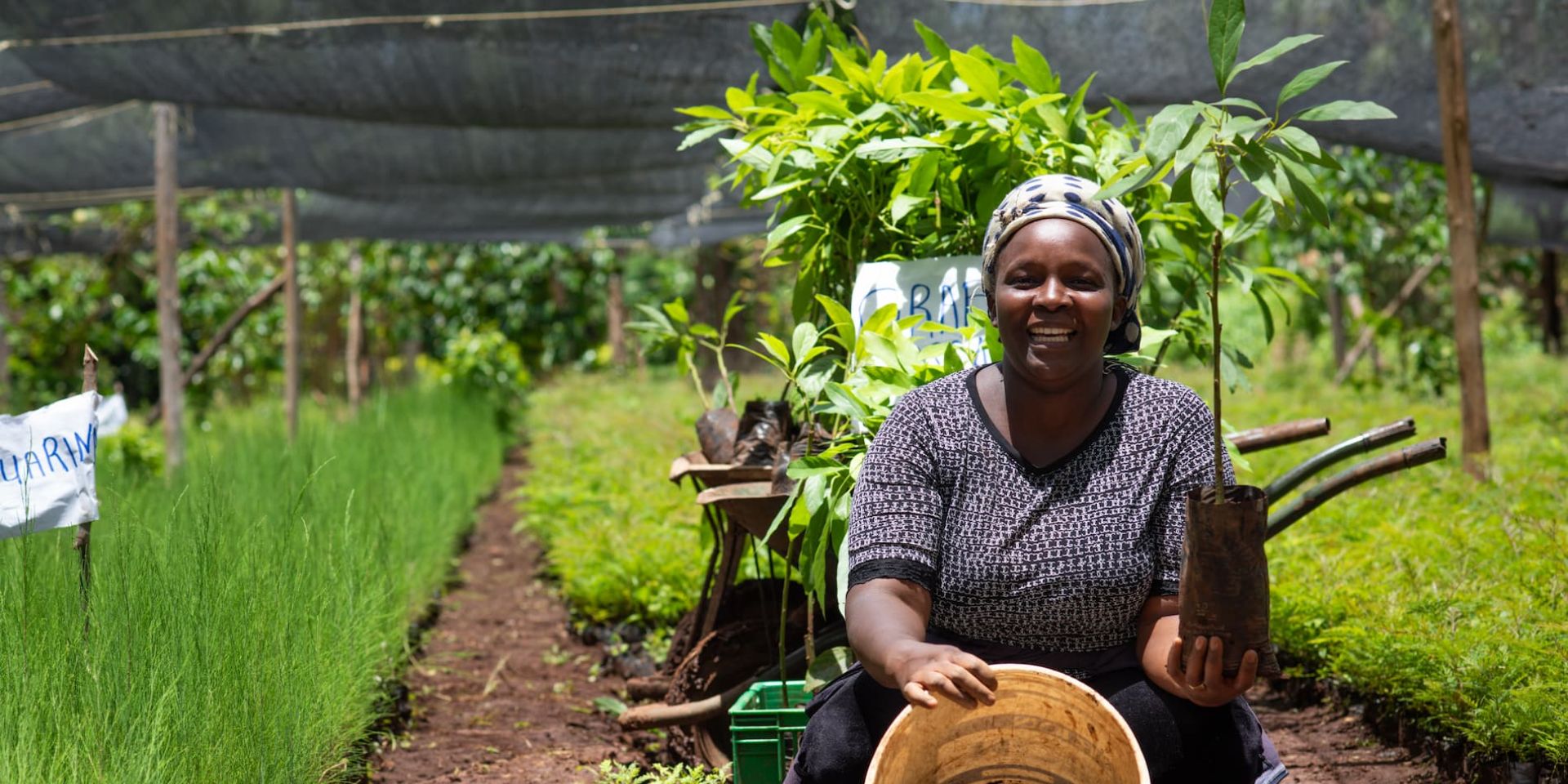Why tree planting on farms is a win for farmers and nature
Agroforestry – the practice of planting trees amongst crops – offers lots of advantages for rural farming communities and the environment that they depend on. Each tree is so much more than a tree, playing an important role in building the climate resilience of smallholder farmers by enhancing soil health, contributing to carbon sequestration, and supporting the healthy growth of crops. They also offer a sustainable additional source of income, which is increasingly critical as our changing climate no longer guarantees strong harvests.
At One Acre Fund, our community-led tree initiative equips farmers with the tools and knowledge to grow a range of tree varieties – from fruit trees and timber trees to trees that have soil health benefits. It also supports farmers to become social entrepreneurs by offering them the opportunity to become tree nursery managers within their communities.
Trees as an income source
Often, farmers see trees as competing with food production, but agroforestry can actually improve harvests through improving soil health and preventing erosion.
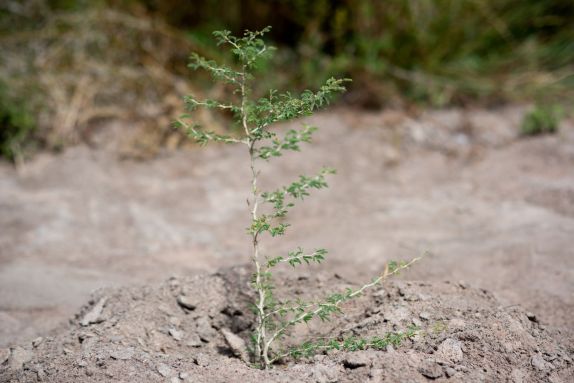
Tree varieties such as Musangu (Faidherbia albida) – which is indigenous to Zambia – are particularly excellent at fixing nitrogen in the soil (which improves soil health), has a root system that helps bring moisture to the surface benefiting the crops surrounding it and is also good at carbon sequestration – removing carbon dioxide from the atmosphere and storing it in the soil. This carbon sequestration ability means that in Zambia we’ve been able to monetize tree planting via carbon credit payments to farmers.
Planting fruit trees - like macadamia and citrus - is another way farmers can make money from trees. They can sell the fruits their local market in addition to selling their traditional crops. Thirty-one-year-old Baraka Msemwa, from Wanging’ombe District in Tanzania, has seen his income significantly grow through planting avocado trees.
“I have built my family home. I plan to invest more in growing and selling avocados to grow my income,” Baraka says. “Considering my young age and growing family, I see tree farming as a good investment in securing a better future for my family.”
And our network of locally-run tree nurseries provides farmers who want to run one of these nurseries with the resources and management training they need to grow thousands of tree seedlings to sell to other farmers in their local communities. Dunstan Mlimuka, a smallholder from Iringa District in Tanzania, says running a tree nursery not only offers him the opportunity to increase his income, but that it also enables him to give back to, and benefit his community.
“Working with One Acre Fund has also given me a sense of purpose within my community,” Dunstan says.
Since 2021 he has produced 31,900 seedlings and has recently branched out into growing fruit trees.
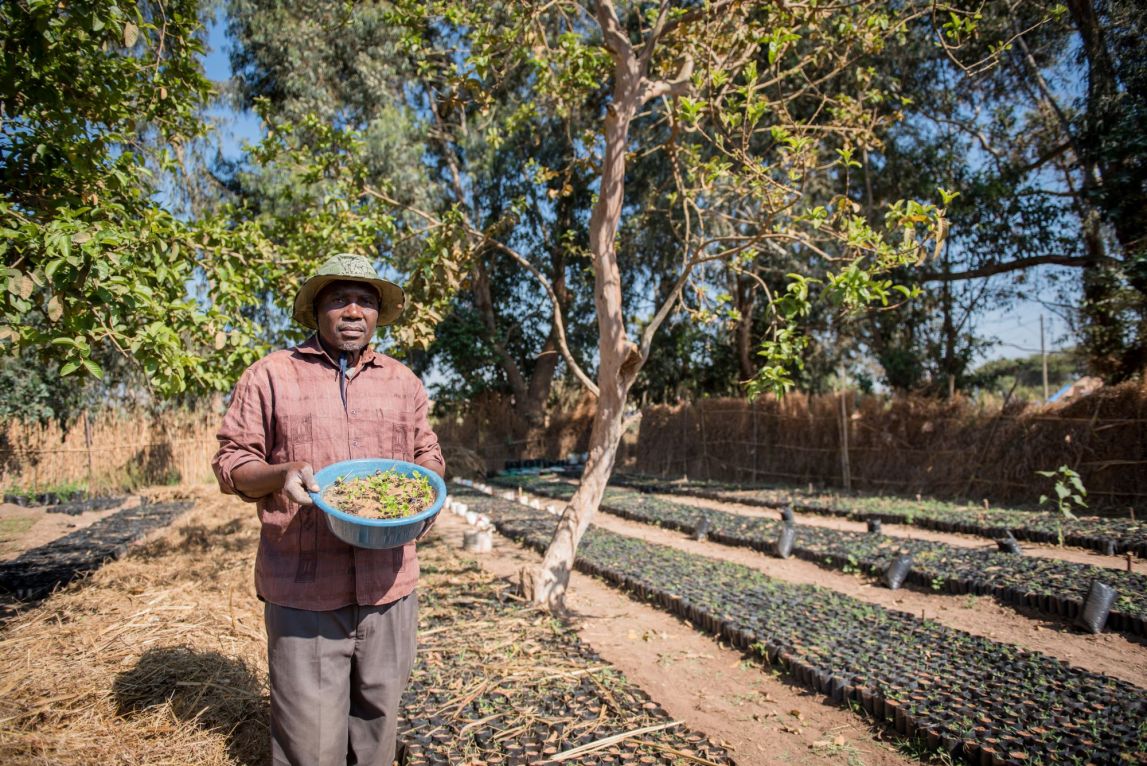
“After realizing the lucrative market for apples and avocados, I began producing fruit trees,” Dunstan says. “Working with One Acre Fund has significantly expanded my customer base, given its popularity among farmers.”
Trees as climate resilience
Beyond the clear economic benefits, agroforestry is an impactful tool for building the resilience of smallholders to the changing climate. Planting trees can help reduce the impact of droughts - which are increasing in Eastern and Southern Africa - by increasing water retention in the soil. They can also reduce the effects of floods when extreme weather strikes, by reducing run-off and preventing soil erosion.
When the right tree species are planted in the right place on a farm, they can also help improve the overall productivity of the land by conserving soil moisture and improving soil fertility, for example, by fixing nitrogen in the soil. Trees also help to reduce evaporation of soil moisture and provide organic matter from their leaves for compost.
In Rwanda, 30-year-old Claudine Ayinkamiye recalls a time when farmers did not plant trees because they couldn’t afford seedlings.
“When I came to live in this area, many farmers did not plant trees. And when One Acre Fund supplied seedlings, it was as an incentive for enrolling, meaning each farmer got just a few,” Claudine recalls.
“Rwanda is a hilly country and prone to soil erosion; farmers who planted trees on their farms no longer experienced soil erosion, and so then suddenly everybody wanted trees.”
In 2020, Claudine learned that One Acre Fund was recruiting farmers to partner with as nursery managers and successfully applied. “I was excited to become a nursery manager, both to help farmers plant trees and for the extra income I’d earn selling seedlings,” Claudine says.
In her first year as an outgrower, Claudine produced and sold 7,000 seedlings to over 350 farmers. She used the money she earned to bring piped water to her home, saving herself the 800-metre journey to and from the nearest water point. She is especially proud of the transformation in her village.
“Our hills are turning green. We have reduced the soil erosion, farmers get stakes for their climbing beans, and we no longer worry much about the hot, dry season. It makes me so happy,” Claudine says.
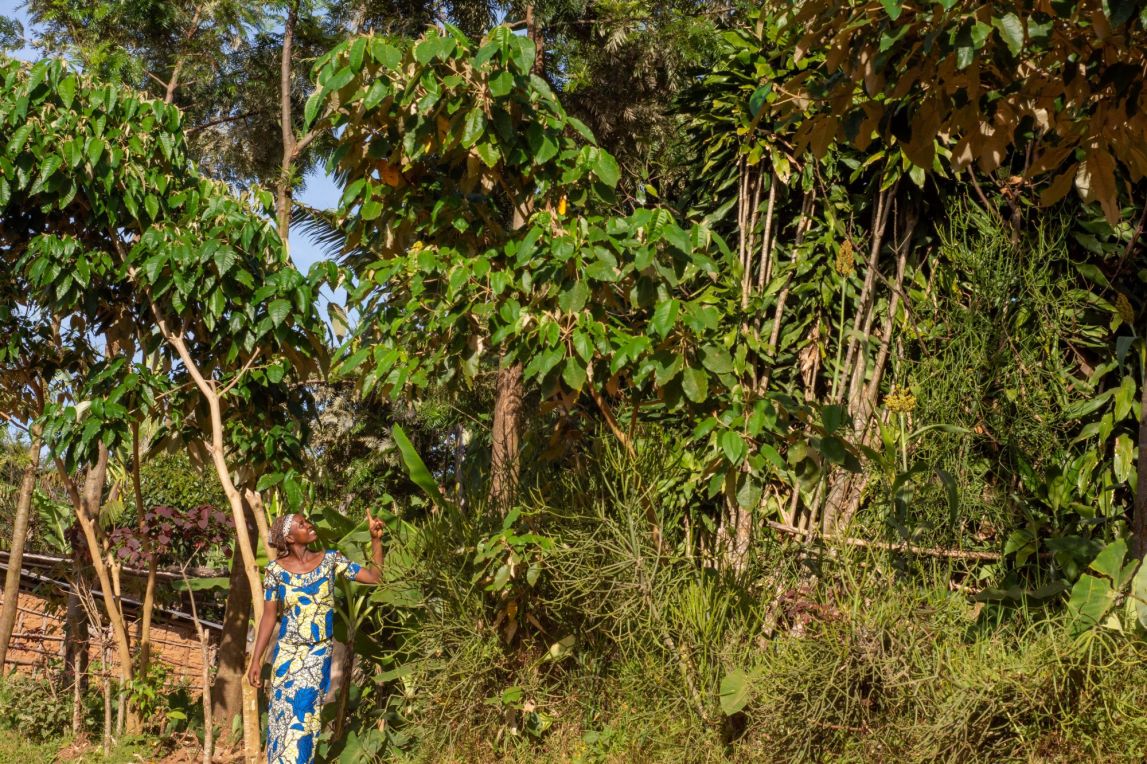
Looking ahead, she wants to build her knowledge of trees to grow more varieties, including fruit trees. “Farmers are always asking when I will start growing avocado seedlings. I know One Acre Fund will introduce it and teach us how to farm it – I know it would make farmers so happy,” Claudine says.
Together, with the benefits of income generation, soil health improvement, and climate resilience building; agroforestry is a powerful tool for improving livelihoods – while looking after the environment –, making it a win-win for both people and nature.
Every tree planted is so much #MoreThanATree.
Plant a tree now
Every tree planted is so much #MoreThanATree for the farmer who plants it.
